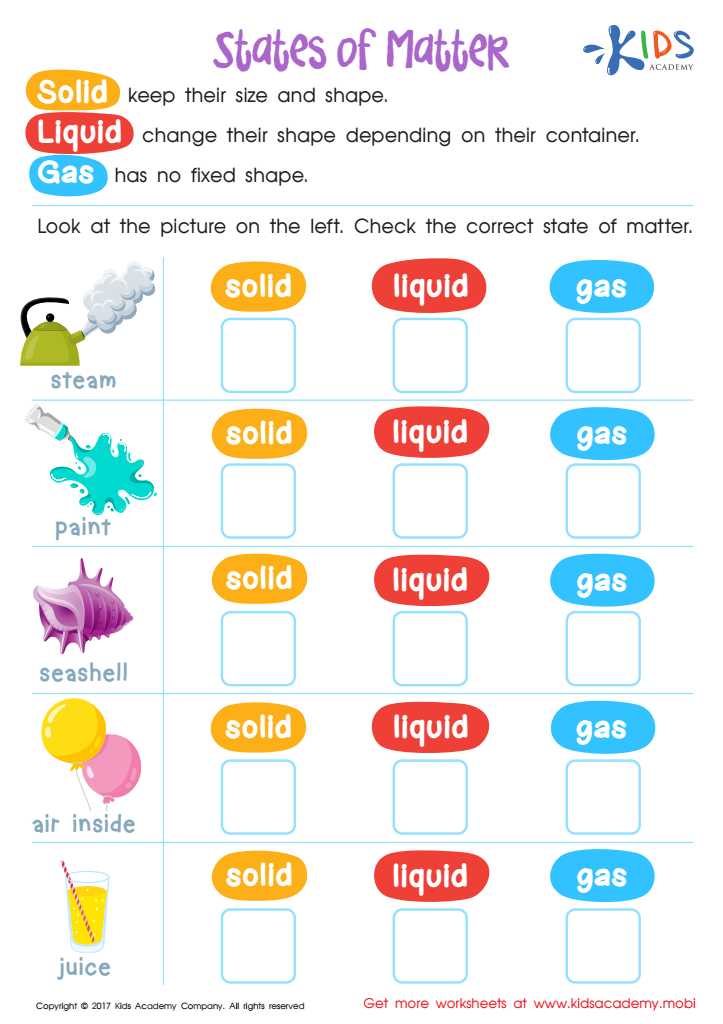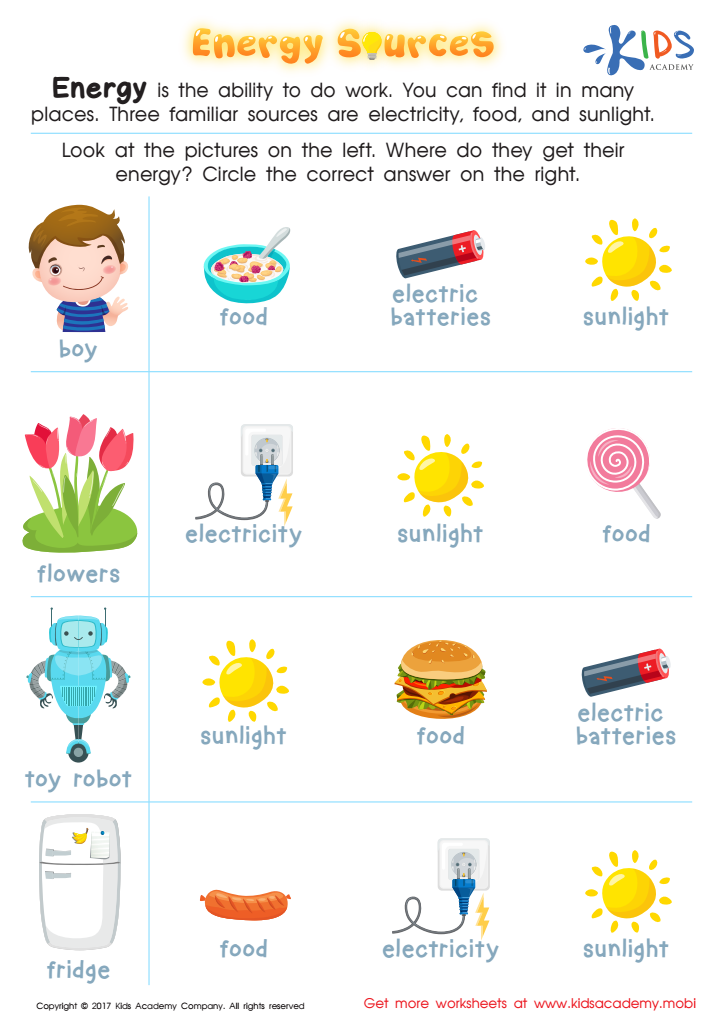Physical Science Worksheets for Ages 5-7
3 filtered results
-
From - To
Welcome to our Physical Science Worksheets for Ages 5-7! Designed to ignite curiosity and foster a love for learning, our engaging worksheets introduce young learners to the wonders of the physical world. Covering essential concepts like force, motion, and simple machines, each activity promotes critical thinking and hands-on exploration. Colorful visuals and fun, relatable examples make science approachable and enjoyable for early learners. Whether at home or in the classroom, our worksheets are perfect for reinforcing foundational skills while making learning interactive. Equip your child with the tools they need to discover and understand the world around them! Download now and start exploring!


Physical Science: States of Matter Worksheet


Sink or Float Printable


Energy Sources Printable
Parents and teachers should prioritize Physical Science for children aged 5-7 because it lays the foundation for critical thinking and curiosity about the world. At this age, children are naturally inquisitive, constantly asking "why" and "how." Introducing them to Physical Science concepts not only engages their curiosity but also helps them develop essential cognitive skills.
Understanding basic principles like gravity, motion, and simple forces fosters a sense of discovery and wonder. Activities involving hands-on experiments allow young learners to explore these concepts in a tangible way, enhancing their analytical skills. Additionally, Physical Science introduces the idea of the scientific method—observation, hypothesis, experimentation, and conclusions—teaching children how to think critically and systematically.
Moreover, as industries increasingly demand STEM competencies, fostering an early interest in science can lead to greater academic and career opportunities in the future. Engaging children with physical science early on encourages life-long learning habits, instills a sense of inquiry, and builds confidence in exploring complex subjects. By nurturing an understanding of the physical world, parents and teachers are empowering the next generation to become informed, innovative thinkers and problem-solvers.
 Assign to My Students
Assign to My Students















